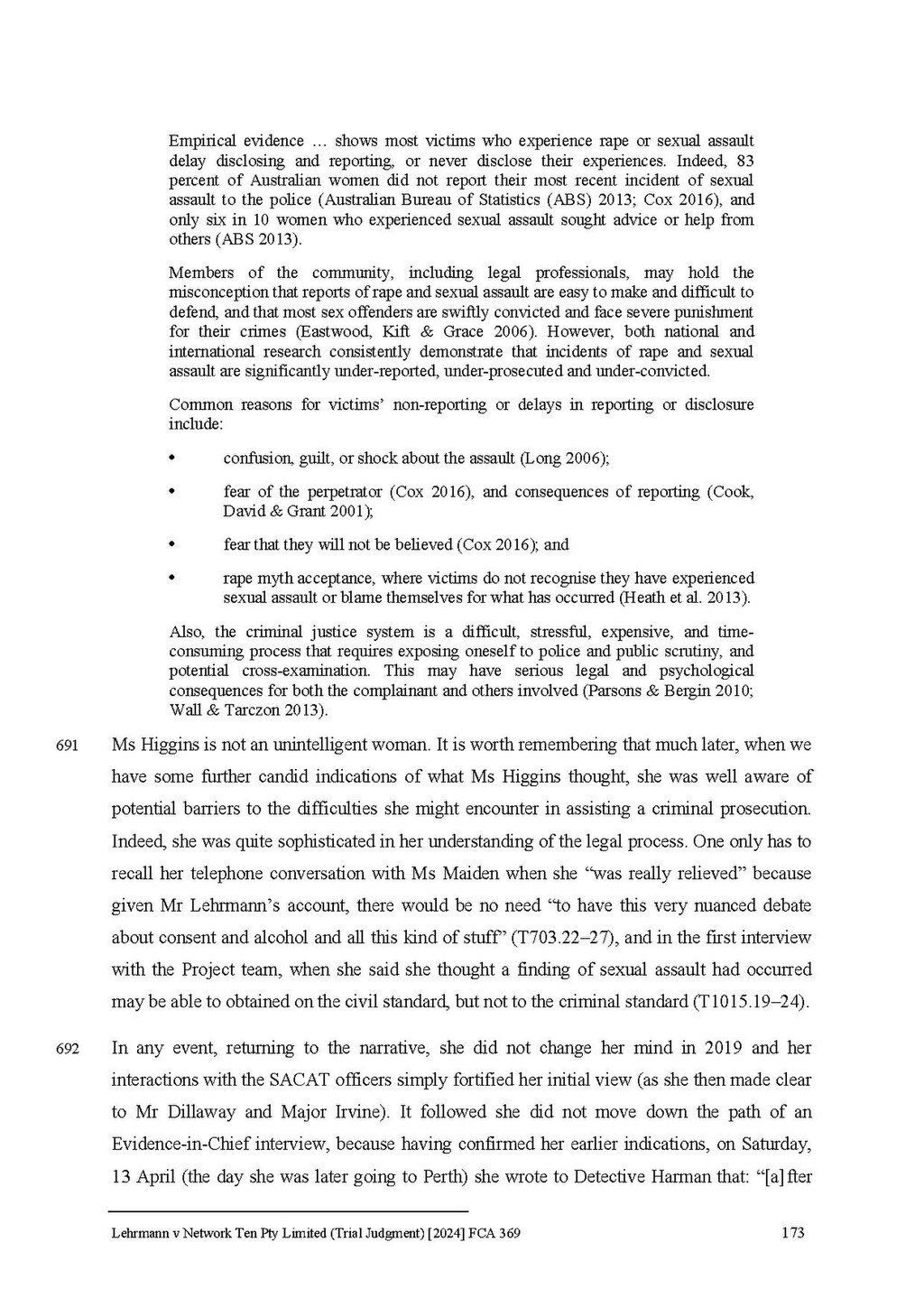Empirical evidence … shows most victims who experience rape or sexual assault delay disclosing and reporting, or never disclose their experiences. Indeed, 83 percent of Australian women did not report their most recent incident of sexual assault to the police (Australian Bureau of Statistics (ABS) 2013; Cox 2016), and only six in 10 women who experienced sexual assault sought advice or help from others (ABS 2013).
Members of the community, including legal professionals, may hold the misconception that reports of rape and sexual assault are easy to make and difficult to defend, and that most sex offenders are swiftly convicted and face severe punishment for their crimes (Eastwood, Kift & Grace 2006). However, both national and international research consistently demonstrate that incidents of rape and sexual assault are significantly under-reported, under-prosecuted and under-convicted.
Common reasons for victims' non-reporting or delays in reporting or disclosure include:
- confusion, guilt, or shock about the assault (Long 2006);
- fear of the perpetrator (Cox 2016), and consequences of reporting (Cook, David & Grant 2001);
- fear that they will not be believed (Cox 2016); and
- rape myth acceptance, where victims do not recognise they have experienced sexual assault or blame themselves for what has occurred (Heath et al. 2013).
Also, the criminal justice system is a difficult, stressful, expensive, and time-consuming process that requires exposing oneself to police and public scrutiny, and potential cross-examination. This may have serious legal and psychological consequences for both the complainant and others involved (Parsons & Bergin 2010; Wall & Tarczon 2013).
691 Ms Higgins is not an unintelligent woman. It is worth remembering that much later, when we have some further candid indications of what Ms Higgins thought, she was well aware of potential barriers to the difficulties she might encounter in assisting a criminal prosecution. Indeed, she was quite sophisticated in her understanding of the legal process. One only has to recall her telephone conversation with Ms Maiden when she "was really relieved" because given Mr Lehrmann's account, there would be no need "to have this very nuanced debate about consent and alcohol and all this kind of stuff" (T703.22–27), and in the first interview with the Project team, when she said she thought a finding of sexual assault had occurred may be able to obtained on the civil standard, but not to the criminal standard (T1015.19–24).
692 In any event, returning to the narrative, she did not change her mind in 2019 and her interactions with the SACAT officers simply fortified her initial view (as she then made clear to Mr Dillaway and Major Irvine). It followed she did not move down the path of an Evidence-in-Chief interview, because having confirmed her earlier indications, on Saturday, 13 April (the day she was later going to Perth) she wrote to Detective Harman that: "[a]fter
